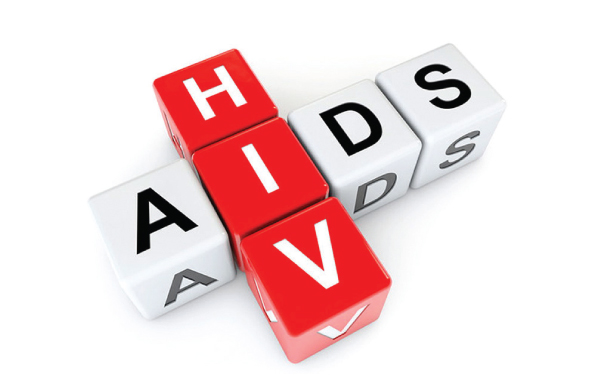No cases of HIV transmission to transfusion recipients by blood donated by such individuals or occupationally acquired HIV infections in Sri Lanka has been reported to the National STD/AIDS Control Programme during the past few years, Consultant Venereologist Dr. Nimali Jayasuriya said.
This information was revealed at a consultation workshop for journalists on the risk and spread of HIV / AIDS held on Wednesday (27) at the Government Information Department Auditorium with the participation of Director of the National STD/AIDS Control Programme Dr. Rasanjali Hettiarachchi, Health Promotion Bureau Deputy Director Consultant Community Physician Dr. Asanthi Balapitiya, Consultant Venereologist Dr. Nimali Jayasuriya and Consultant Venereologist at the National STD/AIDS Control Programme Dr. Darshani Mallikarachchi.
The workshop was jointly organized by the National STD and AIDS Control Program and the Health Promotion Bureau.
Health authorities has identified female sex workers (FSW), men having sex with men (MSM), transgender (TG) persons, beach boys, people who use drugs and people who inject drugs (PWID) as key populations for HIV transmission.
As per the statistics of the the National STD/AIDS Control Programme, there are about 3,700 people living with HIV in Sri Lanka and a total of 410 Human Immunodeficiency Virus (HIV) positive cases were reported in the country in 2021, but there was a slight decline in the number of reported cases in 2020 and 2021 compared to 2019, Consultant Venereologist at the National STD/AIDS Control Programme Dr. Darshani Mallikarachchi said.
She further said that the HIV testing was hampered by restrictions imposed due to the COVID-19 epidemic. “It has been nearly 41 years since we identified the HIV virus. This HIV virus has become a serious issue around the world. Nearly 79 million people in the world have become victims of the dreaded virus. Nearly 36 million people in the world died of this virus, and still people are prone to get infected,” she said.
Although the number of HIV positive cases in Sri Lanka is low compared to other countries in the world, the number of newly reported patients is steadily increasing. There is no effective cure for HIV, but with proper medical care, one can control it. In most cases the virus can be brought under control within six months, Dr. Mallikarachchi said.
HIV testing and care services have been established throughout the country and anyone who wants to get tested for HIV can make an appointment online at www.know4sure.lk. Further information can be obtained by calling 0112667163 /0703633533. In addition, you can call 0716379192 to have your HIV self-test kits delivered to your home.
According to the World Health Organization (WHO), HIV continues to be a major global public health issue, having claimed 36.3 million lives so far. There is no cure for HIV infection.
However, with increasing access to effective HIV prevention, diagnosis, treatment and care, including for opportunistic infections, HIV infection has become a manageable chronic health condition, enabling people living with HIV to lead long and healthy lives.
There were an estimated 37.7 million people living with HIV at the end of 2020, over two-thirds of whom (25.4 million) are in the WHO African Region. In 2020, 680,000 people died from HIV-related causes and 1.5 million people acquired HIV.
To reach the new proposed global 95–95–95 targets set by UNAIDS, there is a need to redouble our efforts to avoid the worst-case scenario of 7.7 million HIV-related deaths over the next 10 years, increasing HIV infections due to HIV service disruptions during COVID-19, and the slowing public health response to HIV.
The human immunodeficiency virus (HIV) targets the immune system and weakens people’s defence against many infections and some types of cancer that people with healthy immune systems can fight off. As the virus destroys and impairs the function of immune cells, infected individuals gradually become immune-deficient. Immune function is typically measured by CD4 cell count.
The most advanced stage of HIV infection is acquired immunodeficiency syndrome (AIDS), which can take many years to develop if not treated, depending on the individual. AIDS is defined by the development of certain cancers, infections or other severe long-term clinical manifestations.



Add new comment